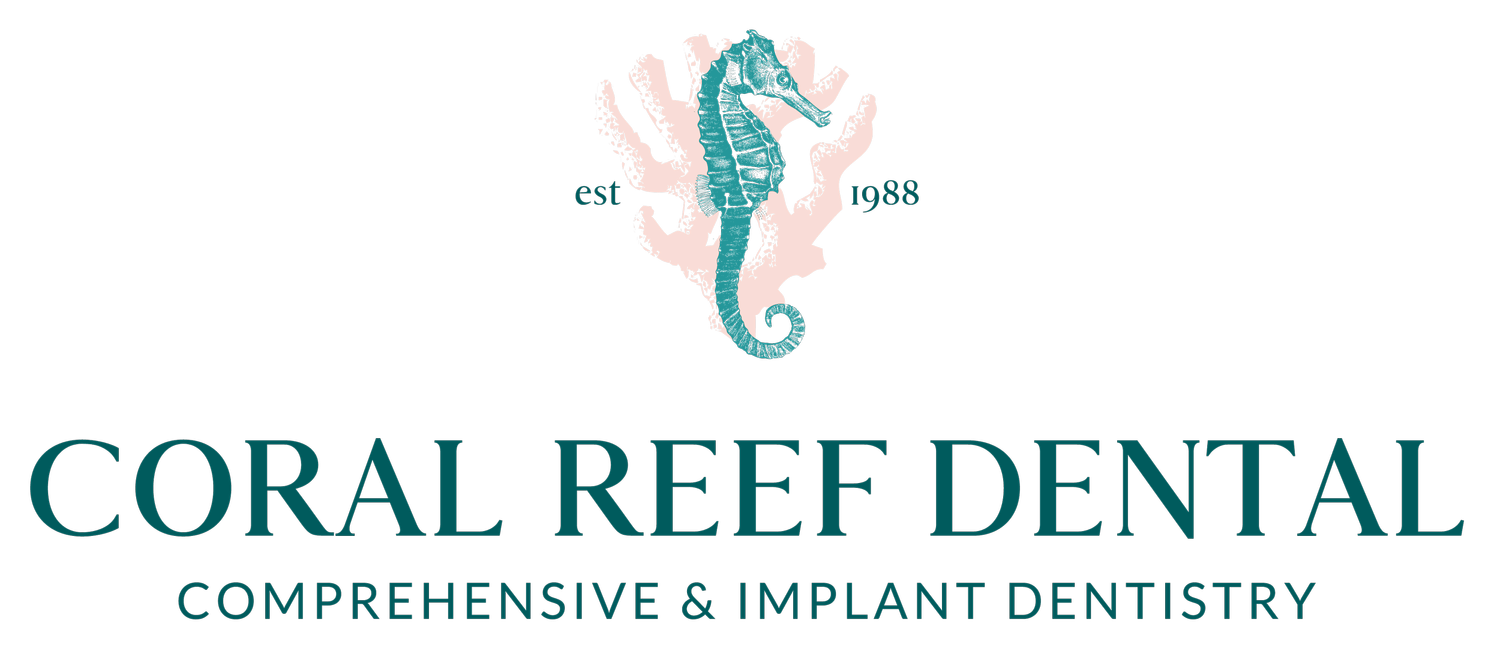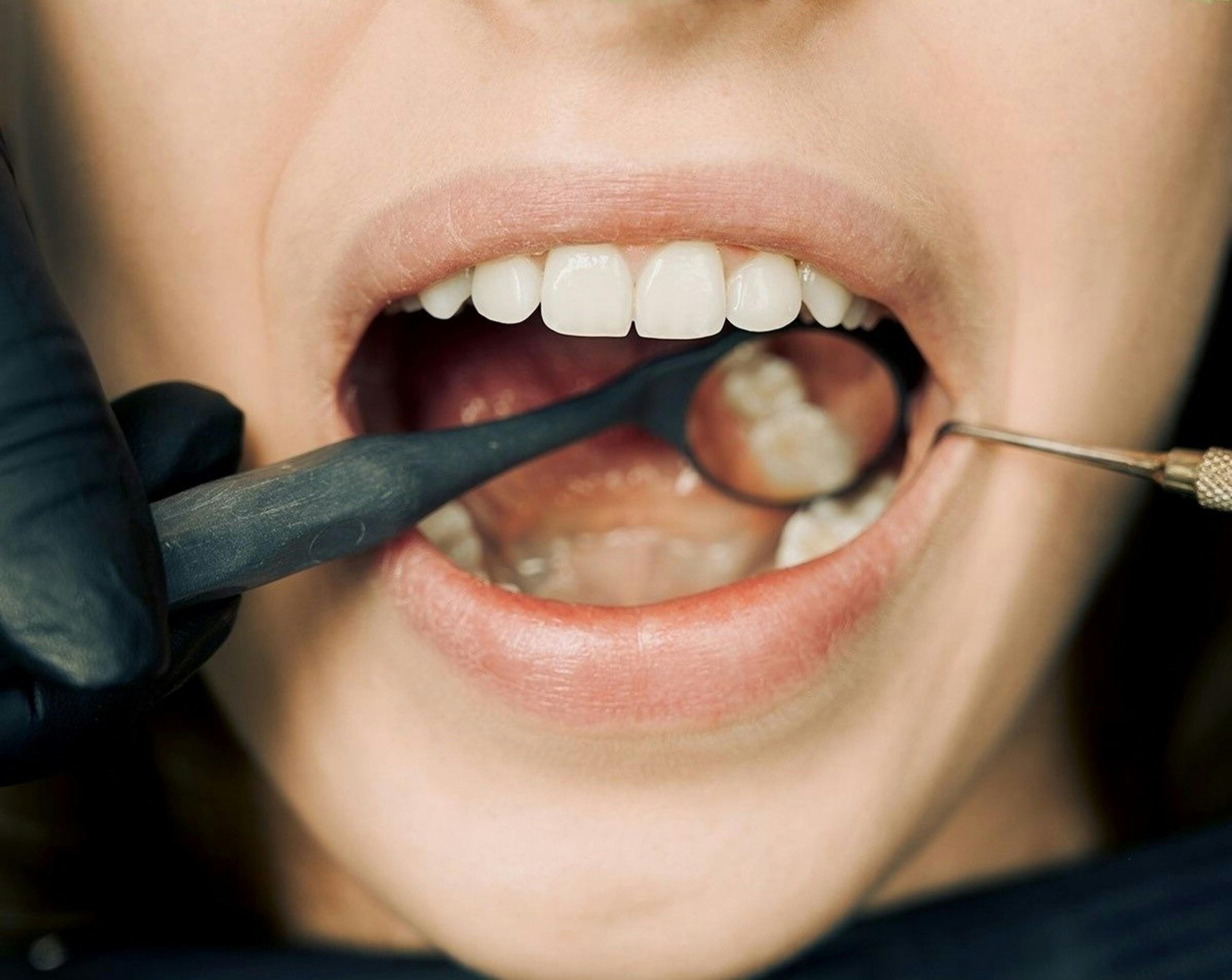Is Gingivitis Contagious?
Gingivitis is an incredibly common inflammatory disease, and many people wonder if it’s contagious. Before you take a swig of your friend’s drink — or anything else containing saliva — you’ll want to know what you’re getting yourself into. Join us as we answer your questions and get to the root of gum disease.
What is gingivitis?
Gingivitis, or gum disease, is an inflammatory response that can appear due to poor oral hygiene, hormonal changes, or certain medications. Symptoms include red, swollen gums, sensitivity to cold or hot foods and drinks, persistent bad breath, and bleeding gums when you brush or floss your teeth.
When left untreated, it can lead to bigger issues like gum recession and periodontal disease, which is bone loss in your jaw. But the effects aren’t limited to your mouth. Advanced gum disease can cause heart disease and increase your chances of heart attacks and strokes. Here’s a deeper look into this common condition:
What causes gingivitis?
Improper oral hygiene is the leading cause of gum disease. When plaque and tartar accumulate on your teeth, harmful bacteria can move in, causing gingivitis.
While men are more likely to suffer from this condition, experts estimate about half of all people over the age of 30 have some type of gum disease.
How do you treat gingivitis?
Fortunately, gum disease is usually manageable. Once you notice the early symptoms of gingivitis, you’ll want to visit your dentist as soon as possible.
To treat gingivitis, your dentist will likely perform oral planing or root scaling. This is similar to having your teeth cleaned, but they go further under the gum line to remove any plaque buildup beneath. In some cases, they’ll follow this procedure with an injection to address any bacterial infection.
They’ll likely give you tips on good oral hygiene to prevent the disease from progressing and may recommend an antimicrobial mouthwash. If the disease has already reached later stages, you might need additional dental care, such as crowns and fillings.
How gingivitis is spread
One reason gingivitis is so common is that it’s easy to spread from one person to another. While many dentists will remind you that gingivitis isn’t technically contagious, the bacteria that cause it can spread rapidly. Regardless, the results are the same. Here are a few ways it’s transmitted:
Kissing
It’s pretty much impossible to avoid swapping saliva when you kiss someone. Sadly, the bacteria that cause gingivitis also live in your saliva, so kissing can put your partner at an increased risk of contracting the disease.
Sharing utensils and cups
Can gingivitis spread from sharing drinks? Yes, it can!
Sharing cups and utensils with someone else is another way to transmit this contagious gum disease, as there’s nothing stopping the bacteria in saliva from attacking another person’s gums.
Using another person’s toothbrush
Even if everyone has good oral health, healthy gum lines, and receives proper dental care, you should never share your toothbrush with your loved ones. And it isn’t just about transmitting gingivitis. Other bacteria and microorganisms can spread from a toothbrush, including cold, flu, and herpes viruses.
How to prevent gingivitis
While gingivitis is common and contagious, it’s still possible to prevent the disease. Here are a few helpful tips that can help you maintain great dental health:
Avoid tobacco
Smoking and chewing tobacco not only damage the sensitive tissue inside your mouth, but these substances can also lower your body’s ability to fight infections. The longer you use these products, the higher your risk of contracting gum disease. What’s worse is smoking can affect how well treatment methods work. For the sake of your dental health and overall wellness, it’s best to stop smoking as soon as possible.
Eat oral-friendly foods
Alcohol and sugary foods are bad for your teeth and gums. They provide the perfect environment for harmful bacteria to thrive. A balanced, healthy diet can help you prevent gingivitis and inflammation of the gums. Fiber-rich foods can work to clean your teeth and gums. Some things, such as milk and sugar-free gum, can promote saliva production, which can reduce plaque buildup.
Keep up a good oral hygiene routine
In order to maintain great oral health, you should brush and floss your teeth at least twice a day with a toothpaste containing fluoride. And, as always, be sure to use your own toothbrush.
Remember, poor oral health can affect your entire body. The next time you consider skipping your nightly oral care routine, think about the consequences.
Visit the dentist regularly
Of course, regular dentist visits are an integral part of proper dental hygiene. Schedule regular cleanings every six months to stay on top of your oral health and prevent gingivitis and other oral health issues.
Coral Reef Dental is Palm Harbor’s patient-centric, kind dentist
At Coral Reef Dental, we practice compassionate, comprehensive care and treat every patient like family. Our advanced dental arts clinic in Palm Harbor provides restorative care, implants, and even sedation dentistry to meet your needs.
Contact us today to schedule an appointment and get your dental health on track!


